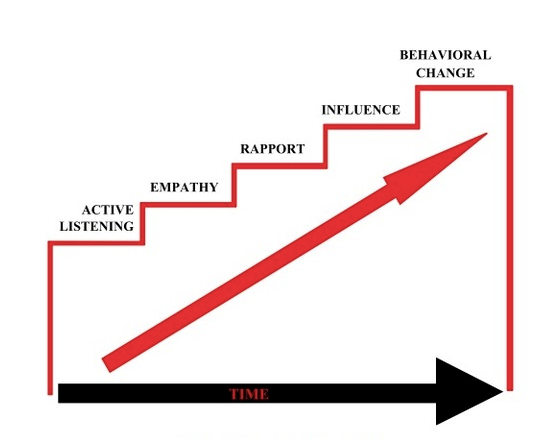Hostage Negotiations and Fundraising
I spend a lot of time talking about the importance of developing real relationships when fundraising. Without an emotional connection to your prospective donor it will be very hard to get them to commit financially in a serious way.
I recently came across a fantastic article that addressed how to negotiate with someone, as learned by hostage negotiators. It makes sense to seek out guidance from professionals who make it their business to negotiate, especially when their success and failure means the difference between life and death.
The article discusses 5 steps that are required in all negotiations:
Active Listening: Listen to their side and make them aware you’re listening.
Empathy: You get an understanding of where they’re coming from and how they feel.
Rapport: Empathy is what you feel. Rapport is when they feel it back. They start to trust you.
Influence: Now that they trust you, you’ve earned the right to work on problem solving with them and recommend a course of action.
Behavioral Change: They act. (And maybe come out with their hands up.)
When you look at these steps, you may be thinking “no big deal”. They seem to be common sense, and something that should be easy to put into practice. The problem is, when most people negotiate they try to remove their emotions either out of a perceived strategy for success, or as a defense mechanism in case of failure. Removing one’s emotions means that you end up starting at step 4, and hoping to influence and change the other person’s behavior. This will undoubtedly end in failure.
The application to relationship based fundraising is pretty apparent. In the words of Chris Voss, FBI International Hostage Negotiator…
…business negotiations try to pretend that emotions don’t exist. What’s your best alternative to a negotiated agreement, or ‘BATNA’? That’s to try to be completely unemotional and rational, which is a fiction about negotiation. Human beings are incapable of being rational, regardless… So instead of pretending emotions don’t exist in negotiations, hostage negotiators have actually designed an approach that takes emotions fully into account and uses them to influence situations, which is the reality of the way all negotiations go…
We need to remember that fundraising is deeply rooted in the business of humans, and humans are inherently irrational. This isn’t something to avoid. It is something to exploit in healthy and positive ways. Fundraising requires an emotional connection, and all the data and charts in the world won’t let you go to the stage of influence without the first three steps of active listening, empathy and rapport.
